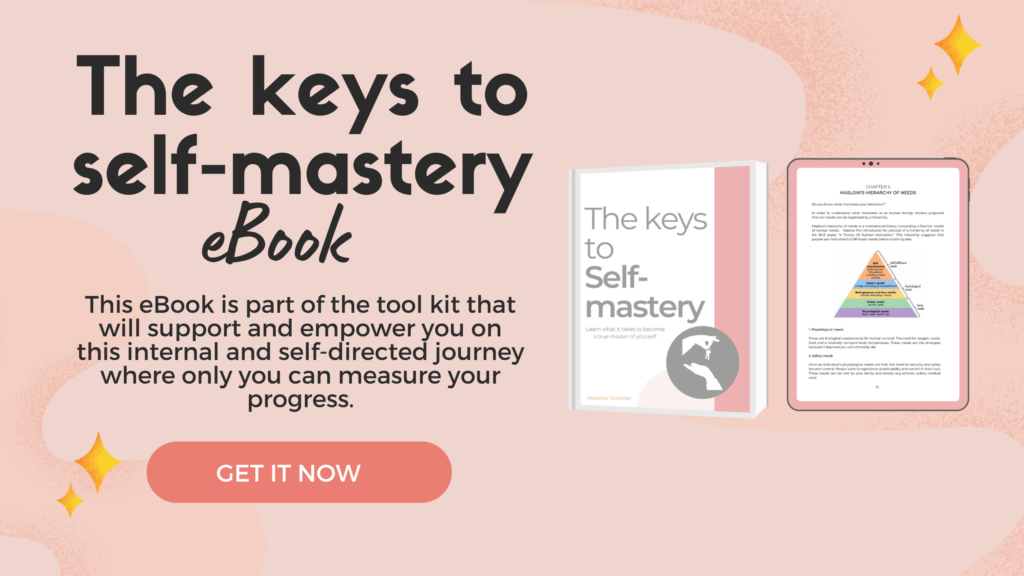
In a world that often emphasises the value of social connections, there’s an important distinction to be made between being alone and feeling lonely.
Many people associate solitude with a sense of isolation or sadness, but the truth is that being alone can be a fulfilling and rejuvenating experience. 😊
In this blog post, I will explore the nuances of being alone versus feeling lonely, understanding the importance of solitude, and embracing the positive aspects of both states.
Let’s get to it. 💕
The Difference Between Being Alone and Feeling Lonely:
Being Alone:
Being alone is a state of physical solitude, where you find yourself without the company of others. It can occur by choice or as a natural consequence of circumstances. Spending time alone provides an opportunity for self-reflection, relaxation, and personal growth.
It allows you to engage in activities that bring you joy, pursue hobbies, or simply enjoy a moment of peace. Being alone can be a deliberate choice, a time to recharge and connect with oneself. 🥰
Feeling Lonely:
Loneliness, on the other hand, is an emotional state that arises from a perceived lack of meaningful connections. It’s possible to feel lonely even in a crowded room if the connections are superficial or unfulfilling.
Loneliness is often characterised by a sense of emptiness, isolation, or a longing for deeper human connections. It’s a complex emotional experience that can impact mental and physical well-being. 😟

Embracing the Positive Aspects of Being Alone:
1. Self-Discovery:
Being alone provides an opportunity for self-discovery. It allows you to explore your thoughts, feelings, and interests without external influences. Use this time to reflect on your goals, values, and aspirations. Self-discovery is a crucial aspect of personal growth and can lead to a deeper understanding of oneself.
2. Independence:
Embracing solitude fosters independence. When you’re comfortable being alone, you become more self-reliant and less reliant on others for your happiness. This independence can empower you to make decisions based on your own needs and preferences, leading to a more authentic and fulfilling life. 🥰
3. Creativity:
Solitude often sparks creativity. When you’re alone with your thoughts, you have the mental space to generate new ideas, think critically, and engage in creative pursuits (yaay). Many artists, writers, and innovators find inspiration in moments of solitude, leading to the creation of meaningful and impactful work. 🎨
4. Rest and Rejuvenation:
Being alone allows for rest and rejuvenation. In a world filled with constant stimuli, taking time for solitude can be a form of self-care. It provides an opportunity to relax, recharge, and focus on activities that bring you peace and joy, contributing to overall well-being.

Addressing the Challenges of Feeling Lonely:
1. Cultivating Meaningful Connections:
If loneliness arises from a lack of meaningful connections, focus on cultivating relationships that nourish your soul. Seek out individuals who share your values and interests. Join clubs, organisations, or communities where you can meet like-minded people. Focus on getting yourself out there. Quality connections are often more fulfilling than a large social circle. 🫂
2. Volunteering and Giving Back:
Engaging in volunteer work or contributing to your community can alleviate feelings of loneliness. By helping others, you not only make a positive impact on the world but also connect with individuals who share a common purpose. Volunteering provides a sense of belonging and fulfillment.
3. Seeking Professional Support:
If loneliness becomes a persistent and overwhelming emotion, maybe consider seeking professional support. A therapist or counselor can provide guidance and a safe space to explore the root causes of loneliness. Addressing these issues with professional help can lead to a more fulfilling and connected life. 🫶
Finding Balance:
The key to a fulfilling life lies in finding a balance between being alone and fostering meaningful connections. Embrace solitude as a time for self-discovery, creativity, and rejuvenation. At the same time, actively cultivate relationships that bring joy and fulfillment. Recognise that both states are essential for a well-rounded and satisfying life. 💕
Conclusion
Being alone and feeling lonely are two distinct experiences, each with its own set of opportunities and challenges. Embracing solitude allows for self-discovery, independence, creativity, and rest. However, if loneliness creeps in, it’s crucial to address it by cultivating meaningful connections, volunteering, or seeking professional support. You are not alone. ❤️
Understanding the nuances between being alone and feeling lonely empowers you to navigate both states with intention and purpose. Ultimately, finding a balance between solitude and social connections contributes to a rich and fulfilling life. Embrace the positive aspects of being alone, foster meaningful connections, and savor the journey of self-discovery in this beautiful dance between solitude and companionship.
Pin this post for a reminder 📌 👇

Related Blogs
Things to Say “No” to for you to Live a Happier Life
How to Stop Settling For Less Than You Deserve
How to Become the Best Version of Yourself: A Guide For 20-Somethings
Are you feeling overwhelmed by your successes? Do you doubt your accomplishments and feel like an imposter? Are you wondering how to overcome imposter syndrome? 🤔
You’re not alone.
Imposter Syndrome is a common phenomenon among high achievers and is characterised by feelings of inadequacy, despite evidence to the contrary.
In this blog post, I’ll be discussing what Imposter Syndrome is, its impact, and five proven strategies to overcome it and embrace your success. 😄
Let’s go!
Introduction to Imposter Syndrome
Imposter Syndrome is a psychological pattern in which individuals are plagued by feelings of self-doubt, despite evidence to the contrary.
It is an internalisation of the belief that one is a fraud and will eventually be discovered. The term was first coined in 1978 by two clinical psychologists, Clance and Imes.
Imposter syndrome affects people of all ages and backgrounds, but it is most commonly seen in high-achievers. 🏆
Such people often feel like they are not worthy of their successes and feel like they are “faking it” until they are exposed as frauds.
It can lead to anxiety, depression, and low self-esteem, and can have a negative impact on both personal and professional life. 😬
Identifying Imposter Syndrome
It is important to be able to recognise the signs of Imposter Syndrome in order to address it effectively. Common indicators include:
👉Feeling like an imposter and that successes are due to luck or outside factors
👉Perfectionism and fear of failure
👉Difficulty accepting compliments and praise
👉Difficulty setting boundaries
👉Procrastination
👉Overworking and burnout
👉Undermining your own accomplishments
If any of these sound familiar, it may be a sign that you are experiencing Imposter syndrome.

The Impact of Imposter Syndrome
Imposter syndrome can have a profound impact on both your personal and professional life.
It can lead to a lack of motivation, difficulty focusing, and difficulty setting boundaries. It can also lead to you becoming overly critical of yourself and your work. ☹️
In a professional setting, imposter syndrome can lead to missed opportunities and underperformance. You may be too afraid to take risks or ask for help, and this can negatively impact your career.
It can also lead to burnout, as you are constantly trying to prove yourself and feel like you are “faking it”.
When in reality, you’re just that good. 🤷♀️
5 Proven Strategies to Overcome Imposter Syndrome
If you are struggling with imposter syndrome, it is important to remember that you are not alone.
There are a number of proven strategies that can help you overcome your feelings of inadequacy and finally embrace your success.
Embrace Failure
The first step in overcoming imposter syndrome is to embrace failure.
Failure is an important part of success and can be used as a learning opportunity. Instead of viewing failure as a sign of weakness, try to use it as an opportunity to learn and grow. You’re never going to get everything right. Fail fast and fail often. You’ll be better for it. 💪
Change Your Mindset
Another important step in overcoming imposter syndrome is to change your mindset.
Instead of focusing on your weaknesses, focus on your strengths and recognise that even small successes are worth celebrating. Allow yourself to accept compliments and praise and recognise that you are worthy and deserving of your successes. 🏆

Acknowledge Your Success
It is also important to acknowledge your successes. Take the time to recognise and celebrate your accomplishments, no matter how small.
It can be helpful to keep a journal of your successes and review it regularly to remind yourself of your worth.
Focus on Your Strengths
Focus on developing your strengths and don’t be afraid to ask for help or support when you need it. Build your skillset and take the time to recognise your progress.
Focusing on your strengths can have several benefits, including:
✨Increased confidence: When you focus on your strengths, you can build confidence in yourself and your abilities. You know you are good at something, and this can give you a sense of pride and self-assurance.
✨Better performance: By focusing on your strengths, you can improve your performance in those areas. When you use your strengths, you can excel at tasks and projects, and produce higher-quality work.
✨More enjoyment: Doing things you are good at can be more enjoyable and rewarding than doing things you are not good at. Focusing on your strengths can help you find more fulfillment in your work and hobbies.
✨Improved relationships: Your strengths can help you build better relationships with others. By using your strengths in interactions with others, you can be more effective in communication, problem-solving, and collaboration.
✨Greater career success: Focusing on your strengths can also help you succeed in your career. By leveraging your strengths, you can pursue roles and opportunities that align with your abilities and interests, and achieve greater job satisfaction and success.

Ask for Support
Finally, don’t be afraid to ask for support.
Reach out to friends, family, or a mental health professional if you need help. It can be helpful to talk to someone who can provide an objective perspective and help you to work through your feelings of imposter syndrome. There will always be someone out there to help you. ❤️
Tips for Embracing Your Success
Once you have taken the steps to overcome imposter syndrome, it is important to take the time to embrace your success because you deserve to reap the benefit of your rewards.
Here are a few tips to help you get started:
👉Take the time to recognise your successes and accomplishments. (if it helps you can create a timeline of when you started and how you reached your goal)
👉Set realistic goals and celebrate your progress, no matter how small.
👉Make sure to take breaks and practice self-care.
👉Don’t be afraid to ask for help or support when you need it.
👉Surround yourself with positive and supportive people.
QUIZ: What does success mean to you? Find out HERE

Conclusion
Imposter syndrome is a common phenomenon among high achievers and can be pretty intimidating. But it is important to remember that you are not alone and that there are a number of strategies that can help you to overcome your feelings of inadequacy and embrace your success. 😁
By taking the time to identify and address the signs of Imposter Syndrome, you can move forward and reach your goals.
If you are struggling with imposter syndrome, don’t hesitate to reach out for help. 🙂
It can also be helpful to talk to a mental health professional who can provide an objective perspective and help you to work through your feelings. With the right support, you can overcome imposter syndrome and embrace your success.
Pin this post for a reminder 📌 👇

The Power of Setting Goals & Objectives
Did you know that people on my email list sometimes get exclusive discounts on my products? Join the community and save yourself some coins!
Freshly-squeezed inspiration, and no-nonsense tips + tricks to improve your life delivered to your inbox weekly.
Subscribe to my newsletter
Subscribe
You're all signed up!
Be sure to whitelist our email address so that all the goodies make it to your inbox.
